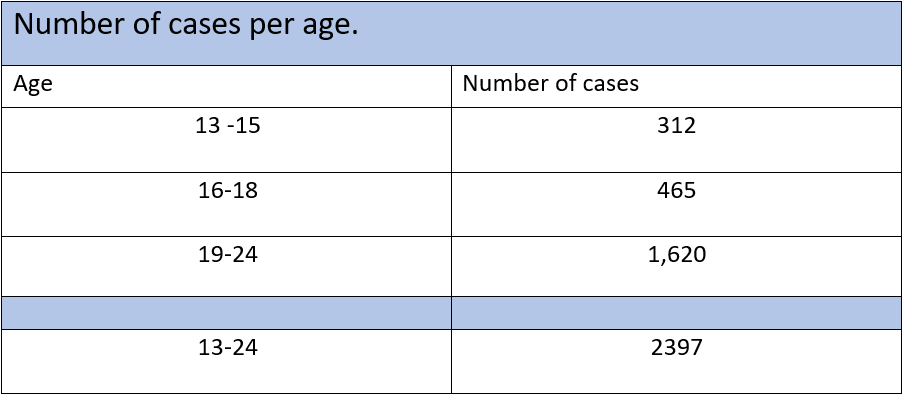
Survival rates for teenagers and young adults with cancer are improving in England, particularly for those with leukaemia and bone cancer.
Survival rates for teenagers and young adults with cancer are improving in England, particularly for those with leukaemia and bone cancer.
This has been found after a report was done by Public Health England and Teenage Cancer Trust. It found that young people living in poorer conditions have lower chance of survival. The report looked at data on 13 to 24-year-olds between 2001 and 2005. Cancer in young people is rare with fewer than 1% of all cancers affecting 13 to 24-year-olds. 2397 young people in England being diagnosed with the disease each year based on figures from 2013 to 2015. The most common age is 19 to 24-year-olds.
Death rates from 13 to 24-year-olds with cancer has decreased from 42.9 per million in 2001 to 32.3 per million in 2015. The largest reduction by diagnostic group in England between 2001 and 2005 has been in Leukaemia. There were also reductions in death from Central Nervous System tumours, bone cancer and in lymphoma. The five-year survival rate for cancer in 13 to 24-year-olds has risen from 83% females/80% males (in 2001-05) to 87%/84% (in 2007-11).
Kate Collins, Chief Executive of Teenage Cancer Trust said:
It’s fantastic that this new report shows for the first time that cancer survival rates are improving in young people. This hugely positive shift has occurred since the decision by NICE in 2005 to recognise and treat teenagers and young adults as a unique patient group and embedded within the NHS the model of care pioneered and invested in by Teenage Cancer Trust.
“Over time, our partnership with the NHS has gone from strength to strength and it’s this infrastructure and specialist workforce that supports key developments that may have contributed to some of the improvements in survival we can evidence today, including through growing access to some clinical trials, supporting advances in treatments and improving patient experience. This report makes a strong case for the importance of such services and for sustained funding of teenage and young adult specialist care into the future. I want to thank every supporter of Teenage Cancer Trust who through their belief and contribution to our work means we’re transforming the lives of young people with cancer every day.”
“As more young people are diagnosed with cancer, more face an uncertain future where their life is put on hold at a time when it should just be getting started. We know that there are now more young people than ever before who need our specialist care and support. Teenage Cancer Trust is the only cancer charity dedicated to the needs of this age group.”
“Despite the encouraging progress being made on survival rates, now is not a time for complacency but even more action. Last week, NHS England in their long-term plan explicitly recognised the need to prioritise young people with cancer including a move to record the DNA of every child with cancer to develop personalised treatment and an aim of 50 per cent of young people with cancer accessing clinical trials by 2025. Their implementation plan will be key in meeting these targets, especially further investing in an expert workforce and creating effective and integrated staff networks.”
Information from young people aged 13-24 years diagnosed in England between 2001 and 2015 were extracted from the National Cancer Registration and Analysis Service. Cases of cancer were counted separately for each primary tumour.
